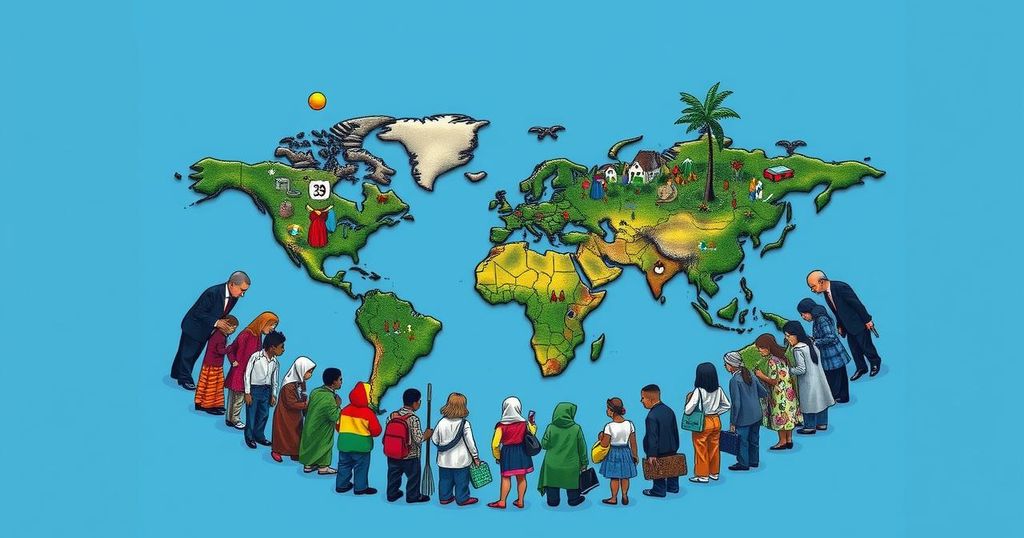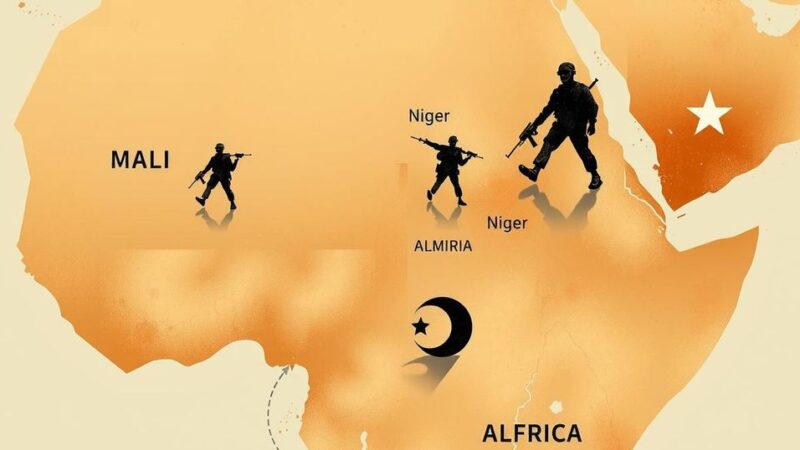The G20 summit in Rio de Janeiro will address global issues such as poverty and climate change, with leaders including Japan’s Prime Minister Ishiba Shigeru, US President Joe Biden, and Chinese President Xi Jinping in attendance. The summit aims to develop measures to combat hunger and poverty, while emphasizing the need for support from wealthier nations for forest preservation. Discussions will be closely scrutinized amid upcoming changes in U.S. leadership.
Leaders from the Group of 20 (G20) major economies are poised to engage in discussions on pressing global issues, particularly poverty and climate change, during their upcoming summit in Rio de Janeiro, Brazil. This two-day event will commence on Monday, gathering significant figures such as Japan’s Prime Minister Ishiba Shigeru, US President Joe Biden, and Chinese President Xi Jinping, all of whom recently participated in the APEC summit in Lima, Peru. The dialogue is expected to focus on strategies to combat hunger and poverty, as well as to foster sustainable development initiatives aimed at addressing climate change. Brazil’s President Luiz Inacio Lula da Silva, who will oversee the summit proceedings, emphasized the urgency of environmental concerns, asserting that “it’s time to tell the world what the Amazon wants.” He further highlighted the necessity for wealthier nations to assist in financing efforts to protect vital forest ecosystems. The summit is being closely watched to see whether the G20 leaders can achieve consensus on these critical issues, which have challenged developing and emerging nations for many years. This meeting holds additional significance as it takes place just two months prior to the inauguration of Donald Trump as President of the United States, who is perceived as hesitant to commit to climate initiatives and more inclined toward bilateral negotiations.
The G20 summit represents a key opportunity for leaders of major economies to address interconnected global challenges, particularly regarding poverty and environmental sustainability. These issues have long plagued developing nations, whose progress is often hindered by a lack of resources and support from wealthier countries. The summit’s discussions are anticipated to yield collaborative efforts aimed at creating actionable solutions, especially in light of the diverse perspectives and interests at the table, particularly as the world prepares for potential shifts in U.S. policy with the incoming administration.
In summation, the G20 summit in Brazil is set to facilitate critical discussions among world leaders on issues of poverty, hunger, and climate change. With Brazil’s leadership emphasizing the need for international cooperation and financing, the outcome of this summit could significantly influence future sustainable development efforts globally. The event’s timing, occurring just before a notable change in U.S. leadership, adds an extra layer of complexity to the discussions on environmental policy and global cooperation.
Original Source: www3.nhk.or.jp






